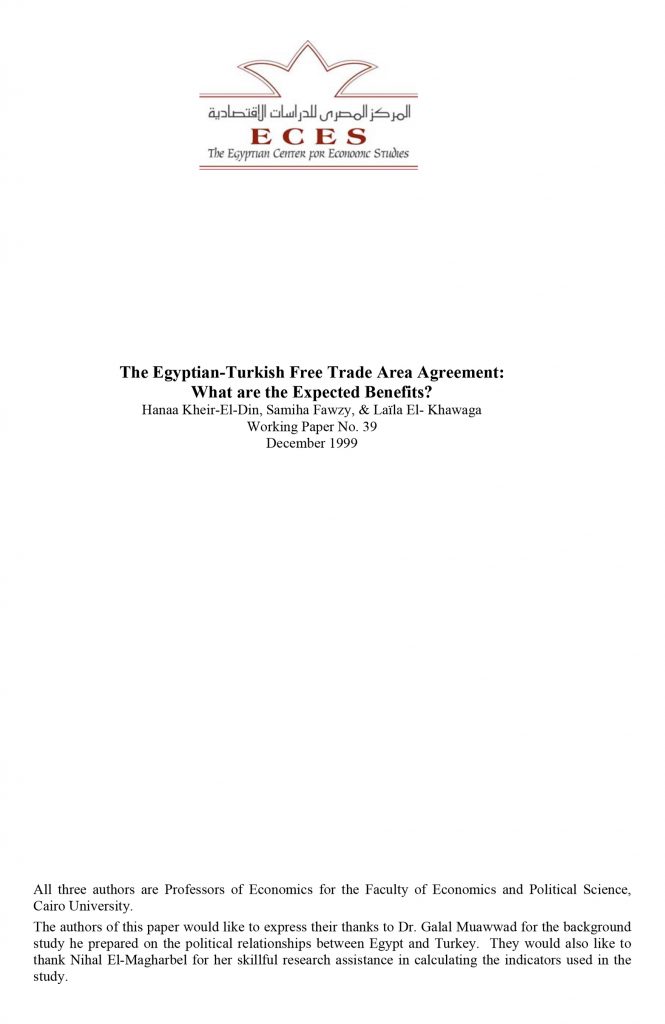Abstract:
The Egyptian and Turkish governments are currently seeking to liberalize their regional trade and consolidate their power positions in the Middle East through the establishment of a free trade area. This proposal has triggered numerous questions that this paper attempts to discuss, namely: What is the Egyptian- Turkish free trade area expected to offer in terms of economic gains, considering that both countries are already engaged in similar agreements with other parties in the Middle East and in other parts of the world? Will this agreement optimize the economic benefits from the other agreements or offset them? Are the real reasons behind the establishment of the free trade area political in nature? If so, are these political motives sufficient to activate the Egyptian-Turkish free trade area without significant economic incentives?
The study concludes that due to its limited coverage and extended duration, the suggested agreement will not promote Egyptian exports to Turkey in the short run. It also shows that although the Free Trade Area between the two countries might have long-term dynamic benefits related to investment and growth, the suggested draft agreement limits possible short-term dynamic gains for Egypt. The agreement neither promotes the sectors where Egypt has comparative advantages such as tourism and construction services, nor does it encourage investments and joint-venture projects between the two countries. Finally, the analysis notes Egypt is likely to benefit politically from this agreement by strengthening its role as a mediator, curbing Turkish-Arab tensions in general, in addition to consolidating its position in the region and enhancing its relationship with the super powers.

